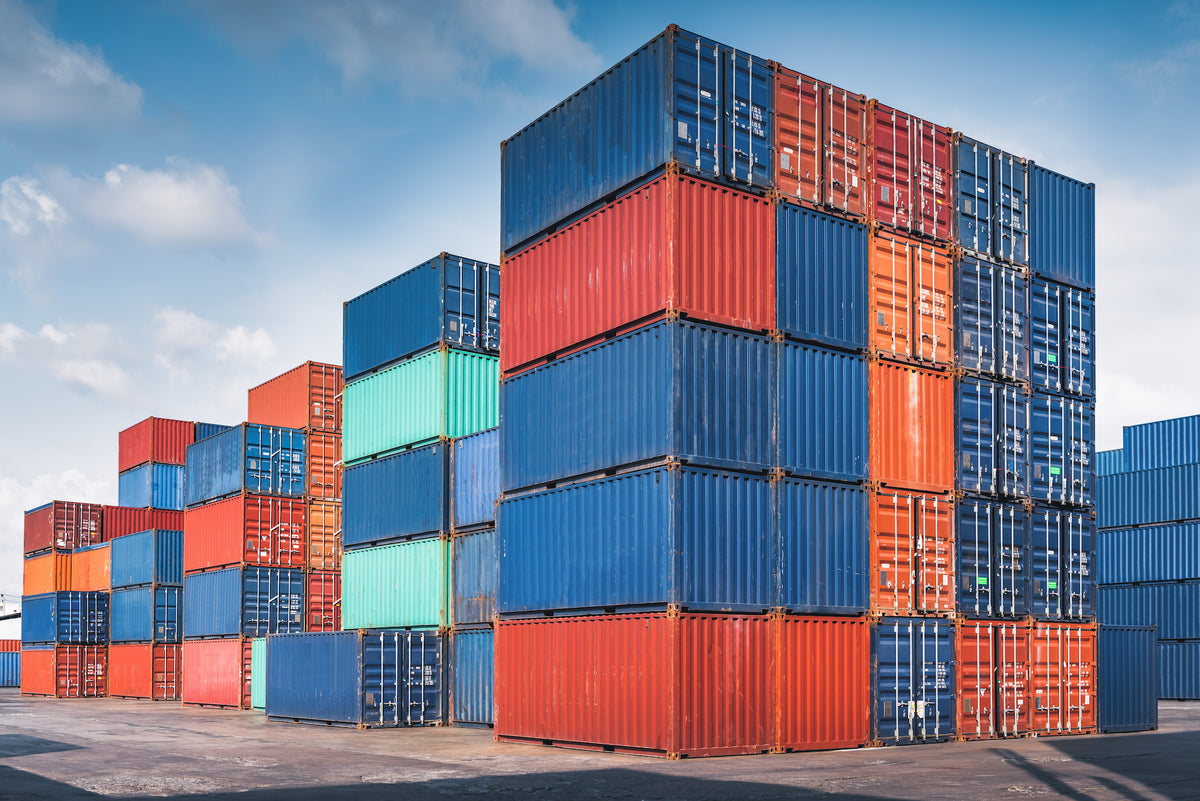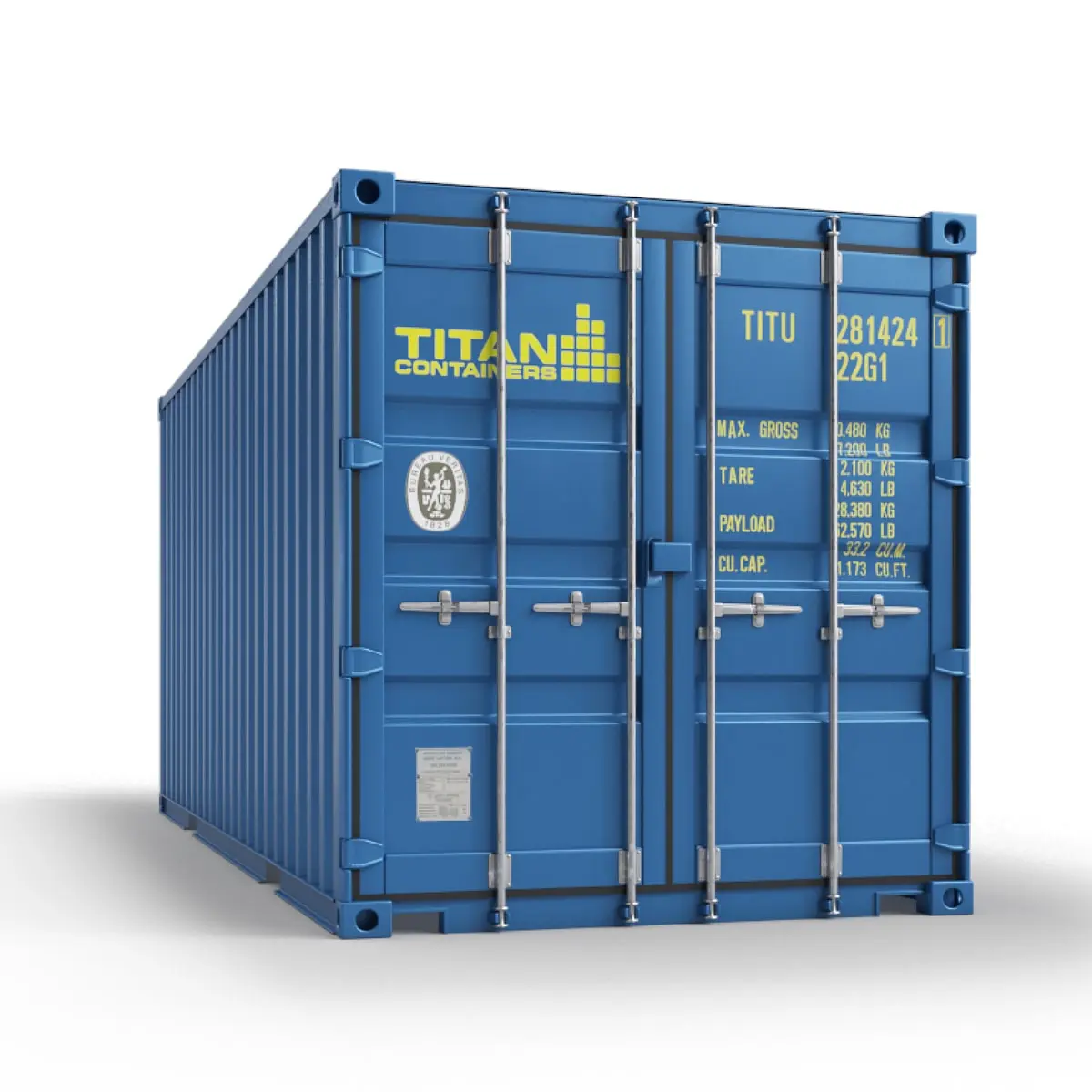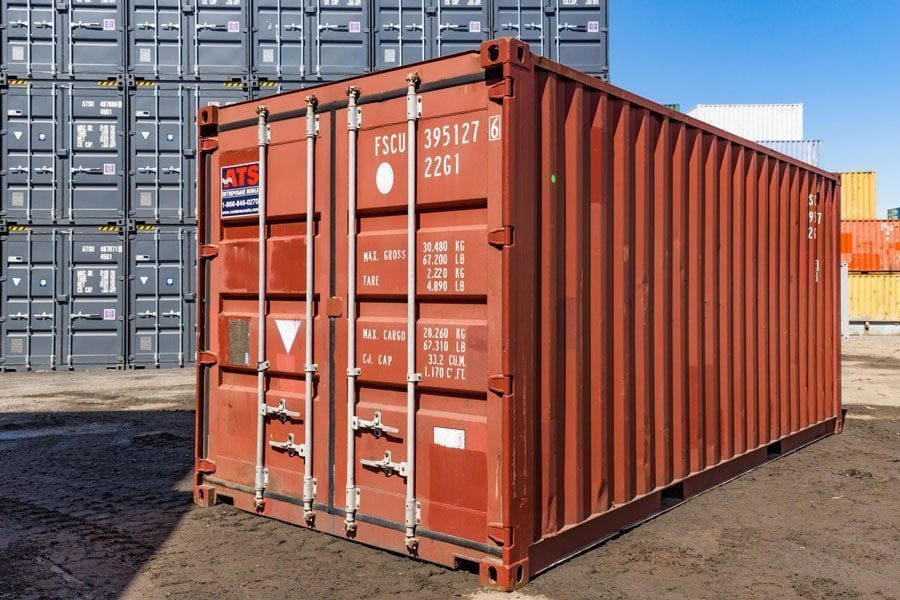Shipping Containers in business: innovative examples
Every little thing You Required to Understand About Shipping Containers and Their Practical Applications
Shipping containers have actually evolved from simple devices for transport to functional frameworks with various practical applications. Their durable layout and basic sizing make them perfect for a series of usages past delivery. From innovative housing solutions to sustainable farming, their flexibility is noteworthy. The possibilities do not end there. Discovering their various features reveals unusual understandings right into modern obstacles and creative options. What other functions could these containers play in today's world?
The Style and Framework of Shipping Containers

Internally, containers are developed to take full advantage of space, often including wooden or steel flooring that can sustain significant weight. Air flow systems may be integrated to avoid moisture build-up, which is critical for delicate cargo. In addition, reinforced corners enable for simple handling by forklifts and cranes, promoting seamless loading and dumping. This thoughtful layout and structure add to the containers' adaptability across various shipping and storage space applications.
Benefits of Using Shipping Containers
While numerous transportation methods have their advantages, using delivery containers stands apart as a result of their unparalleled versatility and efficiency. Shipping containers provide a standardized size, making them simple to transport and stack across various modes of transportation, including trains, ships, and vehicles. This standardization lowers filling and discharging times, therefore increasing general productivity.
Shipping containers are built from sturdy products, providing durable security for goods during transit. They are weather-resistant and secure, reducing the threat of damage from ecological elements or theft. In addition, the modular design of delivery containers enables for simple customization, allowing businesses to adjust them for various functions, such as storage space or mobile workplaces.
Finally, their portability and cost-effectiveness make delivery containers an appealing option for services seeking to simplify logistics and supply chain operations. These benefits add to the expanding popularity of delivery containers in various industries.
Imaginative Housing Solutions With Shipping Containers
Ingenious housing services have become an exciting application of shipping containers, leveraging their intrinsic strengths for domestic usage. These flexible frameworks supply a sustainable option to standard building materials, often at a fraction of the cost. Designers and designers have changed containers into trendy, useful homes, accommodating varied lifestyles and preferences.

Shipping containers are ecologically pleasant, promoting recycling and reducing waste. Lots of jobs concentrate on energy performance, including green roofings and solar panels. As urbanization boosts, these innovative real estate solutions offer a functional feedback to housing lacks while cultivating an one-of-a-kind architectural visual.
Shipping Containers in Retail and Pop-Up Shops
A growing number of sellers are turning to shipping containers as a vibrant remedy for retail rooms and pop-up stores. These versatile structures provide a cost-efficient choice to conventional store fronts, allowing services to create one-of-a-kind, captivating environments that attract customers. Their modular design makes it possible for simple transport and setup, making them excellent for short-term or seasonal retail areas.
Retailers can personalize shipping containers to mirror their brand name identification, transforming them into visually appealing stores that stand apart in crowded industries. The portable nature of containers likewise urges efficient usage of room, enabling innovative designs that maximize consumer flow and engagement. In addition, shipping containers can be situated in unusual places, such as city parks or uninhabited great deals, raising ease of access and foot web traffic.
As the retail landscape develops, shipping containers offer a flexible and ingenious option that satisfies the needs of modern-day customers while enhancing the shopping experience.
Lasting Farming Practices Making Use Of Shipping Containers
Lasting farming techniques significantly incorporate shipping containers as cutting-edge solutions for farming - shipping containers for sale near me. These container ranches utilize hydroponics to maximize space and resource performance, providing an affordable approach to food manufacturing. By transforming shipping containers into agricultural centers, farmers can address food security and ecological concerns concurrently
Container Farming Advantages
While standard farming encounters difficulties such as land deficiency and environment modification, container farming provides a sensible alternative that maximizes area and resources. This ingenious method permits year-round crop manufacturing in regulated settings, minimizing dependence on weather. Container ranches use less water than traditional farming, promoting sustainability and preservation. They can be developed in city areas, bringing fresh produce closer to customers and minimizing transport discharges. Furthermore, the modular nature of delivery containers enables scalability, permitting farmers to adjust operations based upon demand. Container farming additionally reduces pesticide usage by producing an enclosed ecological community, inevitably boosting food safety and security. As urban populations grow, container farming emerges as a sensible solution to fulfill the enhancing demand for local, sustainable food resources.
Hydroponics in Containers
Hydroponics, which allows plants to expand without dirt by making use of nutrient-rich water, prospers within the confines of delivery containers, making it an optimal method for city farming. These containers create a controlled atmosphere that optimizes humidity, light, and temperature level, allowing year-round cultivation. With limited room in urban locations, shipping containers offer a scalable solution for growing fresh produce. Hydroponic systems within containers can consist of various techniques, such as nutrient film strategy (NFT) and deep water culture (DWC), which optimize yield while lessening water usage. This ingenious method not just boosts food safety yet additionally decreases the carbon impact related to conventional farming methods. Hydroponics in containers represents a forward-thinking remedy for sustainable city food production.
Cost-efficient Agriculture Solutions
As food production encounters enhancing challenges because of environment learn this here now modification and urbanization, delivering containers become an economical remedy for agriculture. These flexible structures can be repurposed for numerous sustainable farming methods, such as hydroponics and vertical farming. By using controlled atmospheres within containers, farmers can optimize growth cycles and lower resource intake, including water and fertilizers. Furthermore, delivering containers can be purposefully placed in urban areas, minimizing transport expenses and improving access to fresh fruit and vegetables. Their modular nature allows for scalability, allowing farmers to increase operations as need expands. Repurposing containers contributes to squander reduction, lining up with environmentally friendly agricultural initiatives. On the whole, delivering containers existing ingenious opportunities for efficient and sustainable food production.
Emergency and Disaster Alleviation Applications of Shipping Containers

Organizations regularly make use of delivery containers to develop mobile facilities or field medical i loved this facilities, ensuring that healthcare gets to those in demand. Additionally, they can be transformed into command facilities for coordinating rescue operations, thereby boosting business performance during dilemmas.
Additionally, containers can be changed to store important products such as water, clothing, and food, protecting products till they are dispersed. Their movement permits them to be easily delivered to numerous areas, making certain that help arrives where it is most urgently required. Overall, delivery containers play a crucial function in enhancing the effectiveness of catastrophe alleviation efforts worldwide.
Frequently Asked Inquiries
Just How Are Shipping Containers Transported From One Area to One More?
Shipping containers are delivered by means of vehicles, ships, and trains, utilizing cranes for loading and discharging. This multi-modal transport system ensures efficient movement throughout land and sea, attaching international supply chains and facilitating international profession.
What Is the Average Life-span of a Shipping Container?
The typical life expectancy of a shipping container usually ranges from 10 to 25 years, relying on upkeep, use, and environmental aspects. Correct care can prolong their use, while overlook may bring about deterioration and damage.
Can Shipping Containers Be Modified for Various Uses?
Yes, shipping containers can be customized for different uses. They offer as homes, offices, pop-up shops, and storage space systems. Their versatility enables imaginative adjustments, making them ideal for a wide variety of applications.
Are Shipping Containers Eco-friendly?
Shipping containers can be eco-friendly, as they promote reusing and repurposing. Their durability reduces waste, while their usage in alternative real estate and businesses lessens the requirement for new products, adding to sustainable practices.
Just how Do I Pick the Right Size Shipping Container?
To select the ideal size delivery visit their website container, one should analyze storage demands, think about the designated usage, and evaluate area accessibility - shipping containers for sale near me. Typical sizes consist of 40-foot and 20-foot containers, each offering numerous storage space and transport needs effectively
Cutting-edge real estate solutions have actually emerged as an exciting application of shipping containers, leveraging their integral strengths for property use. The flexibility of delivery containers permits for innovative formats, from single-unit homes to complex multi-container setups. Sustainable farming techniques significantly incorporate delivery containers as innovative remedies for agriculture. In addition, the modular nature of delivery containers allows scalability, permitting farmers to adjust operations based on need. Hydroponics, which allows plants to grow without soil by using nutrient-rich water, thrives within the confines of shipping containers, making it an optimal technique for metropolitan farming.